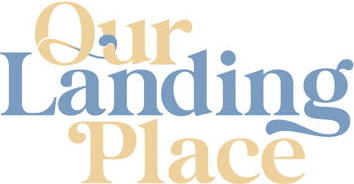Alice Curitz is founder and director of Our Landing Place, a collective of 2SLGBTQIA+ identified counsellors offering sex-positive, affirming, virtual counselling across Canada. Last month, Wayves' Cormac Newman sat down with Alice.
As an undergrad, Alice Curitz found herself at the university counselling centre.
This was “many, many years ago,” Curitz tells me, and Alice Curitz was not yet ‘Alice Curitz, founder and director of Our Landing Place.’ She was a young adult dealing with the ups and downs of student life — a familiar position for many — and she needed support.
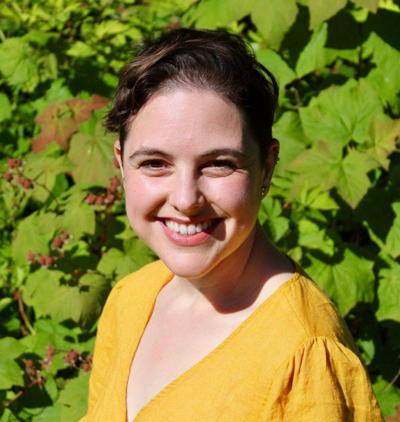
“I called and said, ‘I’ve gone through a really tough breakup. I need somebody that is 2SLGBTQ+ friendly, understanding, and knowledgeable. Is that possible?’ And they were like, ‘Oh yeah, absolutely no problem!’” she recalls.
She’d soon discover that this was, in fact, a problem.
“I had an absolutely terrible experience. The person had no idea what to do with me! She was terrified,” Curitz tells me. There’s a touch of humour to her tone, though it’s incredulous — like laughing out of shock.
“Actually, it was so strange, because I really don't think I was talking about anything out of the ordinary; I had had my heart broken,” she continues. “I was really sad about it. I was definitely struggling with some depression, and that was it. My perception of it is that she couldn't grasp that my relationship was just a relationship.”
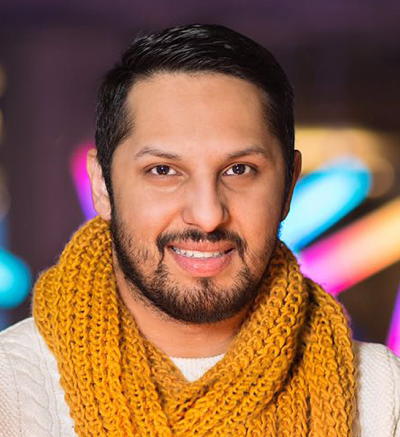
Neither amusement nor disbelief linger as Curitz says this; instead, there’s a tangible passion in her words. Queer people deal with many of the same issues that straight people do: anxiety, depression, codependence, addiction — or, like in Curitz’s case, bad breakups — but counsellors don't always see things this way.
There are nuances to the queer experience, of course. Heteronormativity and homophobia — internal or external — can accompany classic interpersonal challenges. “There are additional stresses to being a queer person in life that we need to have in mind,” Curitz says. To her, it’s not about assuming someone’s experience, but about “being aware that these are possibilities and exploring to see if that's the case.” A therapist should have an informed perspective: be mindful that your client… exists in the context, as we’re so fond of saying, without ‘othering’ them and their experience.
This didn’t happen at the university counselling centre. “She didn't say anything throughout the entire session,” Curitz recalls. “Then, at the end, she told me I should find a friend and talk to them.”
There are additional stresses to being a queer person in life that we need to have in mind
Years passed before Curitz returned to therapy. This time, things were different — the therapists were “very good at what they do” — but still, something was missing. “I felt like either somebody was putting their heteronormative lens onto my life; doing good therapy, but I'm not straight, so I don't fit into that box,” she says. “Or, there was this [sense] of: ‘It's so different that I don't really want to touch it. I don't feel competent supporting this, so I'm just going to keep that over to the side.’”
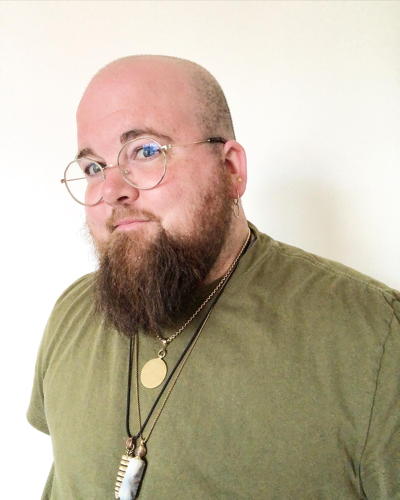
While training as a relationship therapist, Curitz remembered these feelings. She wanted to provide queer clients with an authentic, informed perspective — one that’s hard to come by in relationship therapy. So, after a few years’ work experience in community mental health, Curitz struck out on her own.
“I was told not to open a queer practice,” she says. “I was told [that] if I wanted to build a successful business and to have a good caseload, I really shouldn’t put that out there.” But Curitz didn’t cave. “I want people to land on my website and opt out if they either feel like this is not the space for them, or if they would have an issue working with an out queer counsellor.”
The approach worked: the practice was filled within a few months. By month seven, Curitz could hardly keep up with referrals. When the practice moved online at the start of COVID, things were busier than ever. “I really liked the online set-up,” Curitz says. “I liked the freedom.” So, after talking with clients, she cancelled her lease on the office and made the shift permanent. All of her clients stayed.
I want people to land on my website and opt out if they would have an issue working with an out, queer, counsellor.
“Now that I was online, more and more people from all sorts of places reached out, saying, ‘Hey, can I work with you? Can I add myself to a waitlist?’ And I feel really strongly that we don't want them to be on a waitlist. I don't want people waiting indefinite amounts of time for support,” she explains. “So, I teamed up with some folks [whose] values aligned with mine, and we started Our Landing Place.”
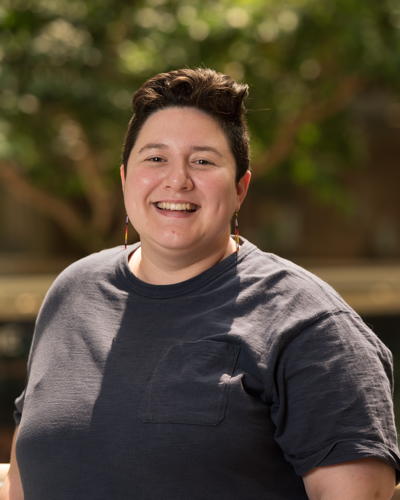
Today, the organization offers ‘sex-positive, affirming, and competent’ care across Canada. “Everybody on our team is 2SLGBTQ+ identified. I think having lived experience in the community that you're working with can be a huge bonus,” says Curitz. “It is not a requirement —I think there are some really great ally therapists out there. But there is something, I think, very impactful about working with somebody that has some sense of your lived experience.”
Starting as a group of three, the team quickly doubled, then tripled. Today, the site lists fourteen profiles on its ‘Counsellors’ page. Curitz wasn’t expecting this (“I wasn't thinking, like, ‘Oh, I want to have like this great big, busy clinic,’” she tells me), but the success was no fluke. Our Landing Place meets a crucial need. Its client base reflects the number of queer people who, like Curitz, want informed care; therapy from people who understand their experience.
Logging in from a familiar space facilitates trust between client and therapist
The quick expansion allowed the organization to live up to its principles. Instead of a spot on an ever-growing waitlist, Curitz knows she can give her client a good referral. Every counsellor is qualified at the masters level in either counselling psychology or social work, and the team approaches clinical practice with “anti-oppressive, feminist values.” They’re expected to continue their education, too. “We also do that as a team [to make] sure that we're actually supporting the 2SLGBTQ+ community,” Curitz adds.
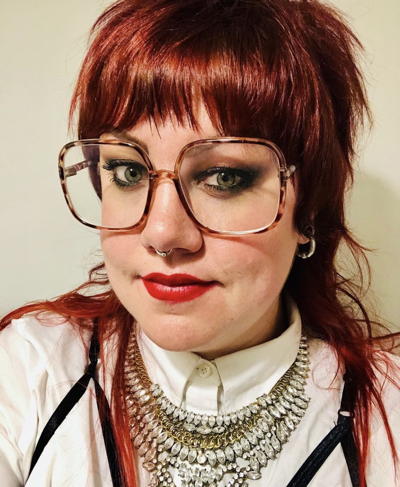
There’s more to Our Landing Place than shared identity, of course. “We are not all the same,” Curitz says. “There's a variety of people on the team for a reason.” So, while the organization is committed to diversity, Curitz understands that identities — like individuals — are nuanced. “It's not that every single person in the community is going to [say]: ‘Yes, there's somebody that seems to be just like me.’ That's not the goal,” she explains. Instead, her hope is for therapists to share some experiences or values with their clients, while also offering a new perspective. “I think that's where the magic can really happen.”
Though Our Landing Place doesn't have a brick-and-mortar location, Curitz says that virtual therapy offers certain benefits that in-person therapy can’t. Logging in from a familiar space facilitates trust between client and therapist. “People are tuning in from their homes, so they're already more comfortable in the space,” she explains. “They're more relaxed. They didn't just have to drive through stressful traffic or in the weather. There's a layer of intimacy.”
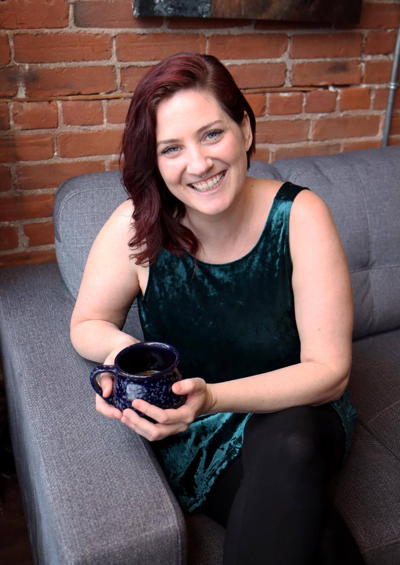
Being remote also makes it easy for the practice to diversify its offerings. Prospective clients find a wide range of counsellors and focus areas, encompassing topics like couples’ therapy, neurodiversity, life transitions, and even psychedelic integration. If this sounds like the massive-to-a-fault directory on PsychologyToday.com, don’t fret — as Curitz explains, accessibility is key.
“It can be really overwhelming when there are thousands of names and hundreds of pages of pictures,” she says. With that in mind, Our Landing Place has taken steps to offer a customized client-therapist relationship. “Counsellors will provide a free service like a meet and greet — at Our Landing Place. This is something that we always do. It's a 15 minute appointment [and] it's completely free. There's no obligation,” Curitz says.
Consultations give clients the opportunity to introduce themselves, ask questions, and get a feel for the counsellor. “I think having that level of agency in your mental health journey is so, so, so important. It's a really great way to find a counsellor that's a good fit,’ Curitz says.
On that note — what does a good fit feel like? Curitz suggests reflecting on this after the consultation. Clients can ask themselves questions like: “How did I feel when I was connecting with that person? Did I feel invited in to be my whole self? Did I like the way that this person held space for me during the consultation?”
Of course, Our Landing Place is happy to offer support throughout the process. There’s a client care coordinator on staff, who can guide clients towards specific therapists and walk them through the intake process. As Curitz puts it, “You're not expected to know how to do therapy or how to do any of this stuff. That's absolutely what we're here for.”
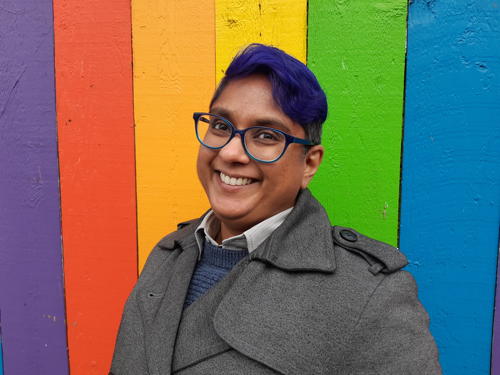
Those aren’t just words; the organization shows up for its clients. Throughout the year, Our Landing Place raises money for their Community Access Fund. That pays for a whole range of services — including HRT assessments, counselling sessions, and gender affirming garments. They’ve also sponsored education for 2SLGBTQ+ students. “There's a lot of barriers to entry into the field, which is why you see a lot of cisgender white women in these roles,” Curitz says. “You start thinking, ‘Who has access to this education?’ So we've done sponsorship there.”
Beyond that, Our Landing Place offers an affordable therapy program, which connects clients with masters-level interns to receive therapy at a reduced rate. Other initiatives include community partnership programs: “Those are tailored to the organization or the individual that we will be connecting with, and we can provide [them] counselling, education, or sponsorship opportunities,” says Curitz. For those interested, there’s more information about sponsorship on their website.
“It's really scary to take that first step, absolutely,” says Curitz. “Everywhere we go, we don't know what to expect. Part of the reason why we are a 2SLGBTQ+ organization, not just an organization that serves the 2SLGBTQ+ community, is to add a layer of safety there. So, once you've taken that first step — which is really, really scary — hopefully, the next steps feel much less scary.”
For more informaion, visit ourlandingplace.com, call 1-844-CALL-OLP (1-844-225-5657) or email admin@ourlandingplace.com. You can book on line using this link: ourlandingplace.janeapp.com.

